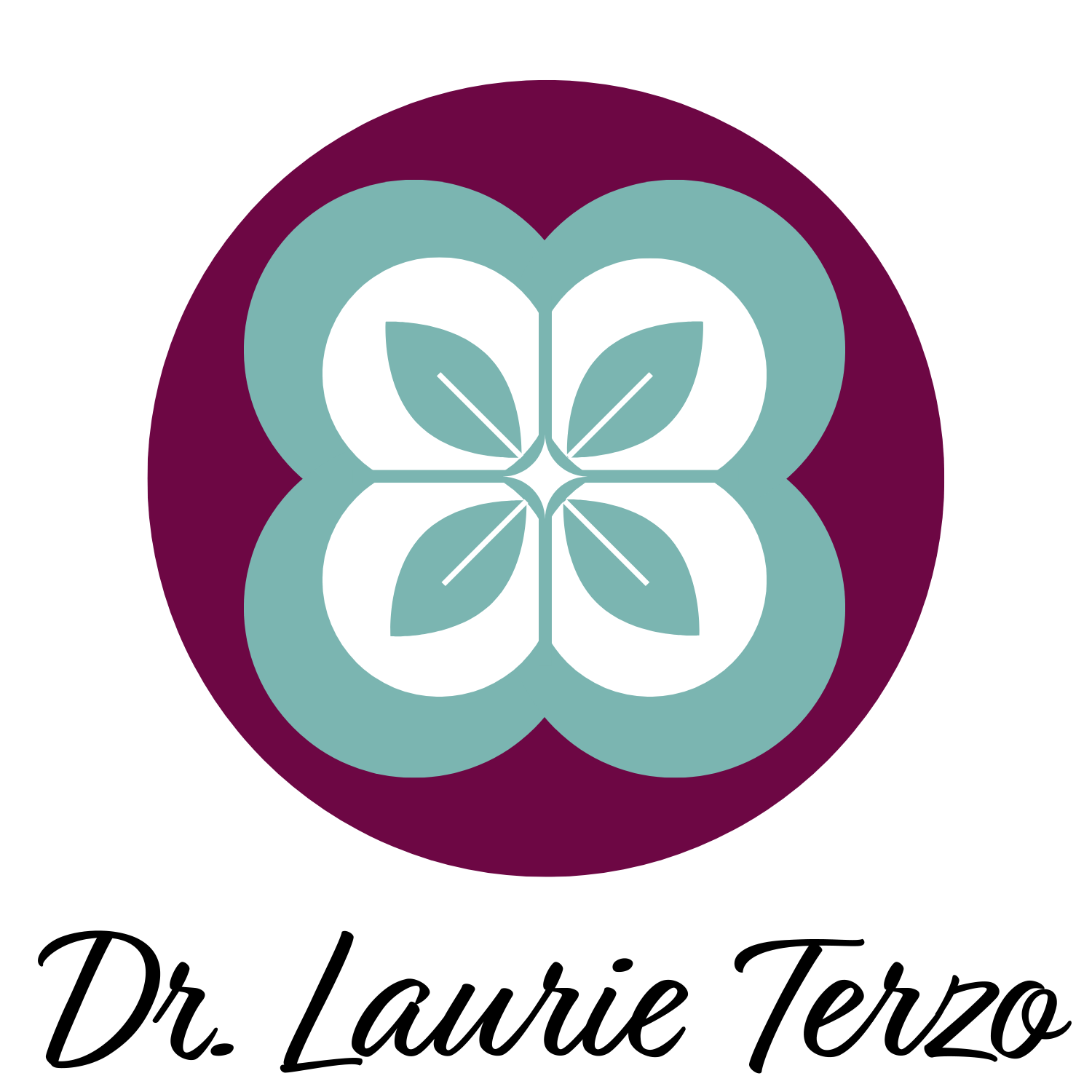The Cortisol-Hormone Connection & How to Naturally Balance It
by Laurie Terzo, DAOM, L.Ac., FABORM
STRESS!!!
Its causes are absolutely everywhere. Would you agree?
Our natural “fight or flight” stress response can sometimes go a little overboard. It’s supposed to help us escape injury or death in an emergency (like fleeing from a saber-toothed tiger) and then return to normal. But, that return to normal many times doesn’t happen much in our society these days – and so it becomes a long-term reaction. It becomes chronic.
You’ve probably heard of the main stress hormone, called “cortisol.” It’s released from your adrenal glands in response to stress. It’s also naturally high in the morning to get you moving, and slowly declines during the day so you can settle down to sleep when it’s time to go to bed.
Did you know that high levels of cortisol are associated with belly fat, poor sleep, brain fog, high blood pressure, high blood sugar, and even lower immunity?
But how about women’s hormone balance and fertility – can high cortisol impact these things? High cortisol can have a huge impact on these things! The mechanism by which this impact happens is called ‘the pregnenolone steal.’
High cortisol levels actually steal from the production of other major sex hormones in the body, potentially causing big issues with hormone balance and reproduction.
The hormone pregnenolone is a precursor hormone, which means it is an upstream hormone that the body uses to transform into other hormones. It can be used by the adrenal glands to transform into either stress hormones or sex hormones at any given time.
When the body perceives itself to be under a high amount of stress, it will shunt production of pregnenolone away from making more sex hormones (such as estradiol and even testosterone) and towards making more stress hormones (cortisol).
This mechanism is why practitioners who specialize in working with women’s hormone balance and fertility are always talking about the importance of reducing stress. We realize this impact of stress on the body is huge!
So, now that we know high cortisol levels impact hormone balance and fertility, how do we lower cortisol levels? Well, read on because I have a list of foods, nutrients and lifestyle recommendations to help you lower this stress hormone naturally!
Foods and Nutrients to Lower Cortisol
Let’s start with one of the biggies that increases your cortisol… sugar. Reducing the sugar we eat and drink can be a great step toward better health for our bodies (and minds).
High doses of caffeine also increase your cortisol levels. If coffee makes you feel anxious and jittery, then cut back on the amount of caffeine you ingest.
Also, being dehydrated increases cortisol. Make sure you’re drinking enough water every day, especially if you feel thirsty.
Eat a variety of nutrient-dense whole foods; this doesn't just help reduce stress hormone, it helps all aspects of your health.
Lower your cortisol levels with tea and dark chocolate (not the sugary, milky kind!).
Lastly, foods high in probiotics and prebiotics can help reduce cortisol.
Lifestyle Techniques to Lower Cortisol
It’s not just food, but there are things you can do with your time that can lower cortisol.
Reduce your stress with mindfulness. Many studies show that reducing stressful thoughts and worry reduces cortisol.
Get enough exercise (but don’t overdo it). Intense exercise can increase cortisol levels, so be especially cautious with this type of exercise if you are trying to conceive.
Get enough sleep! Getting adequate sleep is way too underrated. Sleep reduces cortisol levels and also helps improve your overall health in so many ways.
Relax and have fun. Things like deep breathing, massages, and listening to relaxing music all reduce cortisol.
Be social and bust loneliness. Would you believe me if I told you that science has shown health risks from social isolation and loneliness? It’s true! Maintaining good relationships and spending time with people you like and who support you is key.
Conclusion
Too much cortisol can have negative impacts on your health, hormone balance, and fertility. However, if your cortisol levels are too high, there are many proven ways to reduce levels of cortisol naturally.
In terms of foods and nutrients, ingesting less sugar and caffeine are important. Also, more water, fruit, tea, probiotics/prebiotics, and dark chocolate are all helpful.
Lifestyle factors are similarly huge when it comes to cortisol. To lower cortisol, get more exercise (but not too much or at too high of an intensity), get more sleep, relax, and have more fun.
In the comments below, let me know your favorite ways to bust the stress hormone cortisol!
Recipe (High fiber prebiotic): De-Stressing Chocolate Pudding
Serves 6
3 ripe avocados
¼ cup cacao powder (unsweetened)
¼ cup maple syrup
½ tsp vanilla extract
1 dash salt
Instructions
Place all ingredients into a food processor and blend until smooth.
Serve & enjoy!
Tip: Try adding a pinch of cinnamon for a deeper flavor.
~~~~~~
Are you a woman trying to get pregnant and looking for more personalized guidance and support into natural ways to increase your fertility? Book a FREE Fertility Audit call with a member of our team here.
References:
https://authoritynutrition.com/ways-to-lower-cortisol/
http://www.precisionnutrition.com/all-about-cortisol
https://authoritynutrition.com/16-ways-relieve-stress-anxiety/
https://www.thepaleomom.com/managing-stress/
http://www.health.harvard.edu/staying-healthy/understanding-the-stress-response

